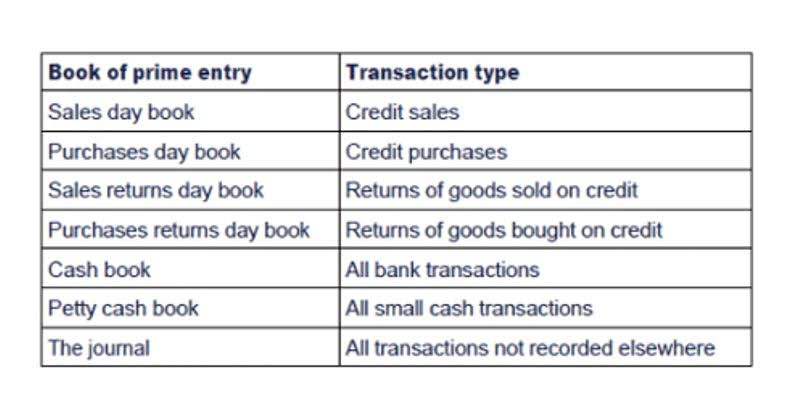Managerial Accounting vs Financial Accounting: The Top 10 Differences

Simply put, Management Accounting is a process that involves the preparation of management reports and accounts to provide accurate and timely information, that managers require for decision-making purposes. Further, depending on the requirement of the management, these reports can be prepared, – daily, weekly, monthly or yearly. Financial accounting emphasizes on giving true and a fair view of the financial position of the company to various parties.

Cost Analysis
On the contrary, management accounting aims at providing both qualitative and quantitative information to the managers, so as to assist them in decision making and thus maximizing the profit. Both financial and managerial accounting offer intellectually stimulating and rewarding career paths. Financial accountants thrive on meticulous accuracy and a keen eye for detail, meticulously weaving together the financial narrative for external consumption. Managerial accountants, on the other hand, relish the challenge of diving into the intricate workings of a company, wielding their analytical skills to equip decision-makers with actionable insights. An account receivable report is a periodic report that organizes a company’s receivables according to the length what is the primary difference between financial accounting and managerial accounting? of time the debt has remained unpaid. It helps a company to measure the financial health of its customers and determine the creditworthiness of each in case of future credit transactions.
- Financial accounting is fundamental for any business aiming to provide an accurate picture of its financial health.
- It is one of the most important financial statements, giving a comprehensive overview of a company’s financial position in a given accounting period.
- International public companies also frequently report financial statements in accordance with International Financial Reporting Standards (IFRS).
- Managerial accounting reports on what is causing a problem and how to fix that problem.
- Companies are always looking for a competitive advantage, so they may examine a multitude of details that could seem pedantic or confusing to outside parties.
- Managerial accounting only exists to help make these decisions much easier, accurate, and effective in relation to a company’s budget and achieving business objectives.
- Usually issued on a monthly, quarterly, or annual basis, the income statement lists the revenue, expenses, and net income of a company for a given period.
Fund Accounting Principles for Financial Professionals

Product costing aims at identifying and distinguishing expenses into these categories for better understanding and analysis. Managerial accounting is intended for internal administrators of a business to make internal decisions. Owners of businesses invest capital in businesses and need accurate information to be able to access their level of profit or loss from their business operations.
- The final accounts or financial statements produced through financial accounting are designed to disclose the firm’s business performance and financial health.
- This improves the quality of financial reporting and helps the management make better strategic decisions as they have a clear picture of the company’s financial health.
- To provide as much beneficial information as possible, managerial accounting relies on a number of techniques.
- For instance, investors might look at a company’s balance sheet to understand whether it can meet its debt obligations.
- Behind most successful business decisions is carefully analyzed financial information.
Differences between Managerial and Financial Accounting
However, without financial data, solving these problems would be much more time-consuming and probably ineffective. Detailed financial records can also help in comparing different areas of options to see where money is being lost. If one department consistently runs over budget, financial data can spot the exact expenses causing these issues. There Budgeting for Nonprofits have been arguments as to which between financial accounting and managerial accounting is more important, but is somewhat pointless. Managerial accounting and financial accounting are two of the most prominent branches of accounting.

The cost of these specialty ice creams is different from the cost of the standard flavors for reasons such as the unique or expensive ingredients and the specialty packaging. Daryn wants to compare the costs involved in making the specialty ice cream and those involved in making the standard flavors of ice cream. Once the total costs for both the specialty ice cream and the standard flavored ice cream are known, the cost per unit can be determined for each type. These types of analyses help a company evaluate how to set pricing, evaluate the need for new or substitute ingredients, manage product additions and deletions, and make many other decisions.
Shareholders’ Equity Statement

We help accountants at every stage to find the right qualifications, boosting their career and achieve their professional goals. Management accounting provides internal analysis and information to assist in decision-making processes. This purpose is key for businesses looking to attract investment and maintain regulatory compliance. These functions highlight how management accounting serves as a vital tool for management to navigate complex business environments. These reports are typically produced at set intervals, often quarterly or annually, and are audited to ensure accuracy and compliance. Every business is allowed to devise its method and set of guidelines for preparing managerial reports.

Main Takeaways
- For instance, production managers are responsible for their specific area and the results within their division.
- Financial accounting information is communicated through reporting, such as the financial statements.
- A proper understanding of costs and profit margins helps a company to optimize resources for increased productivity.
- The reason is that it can affect everything from the company’s share price in the stock market to its ability to secure loans from external institutions.
It compares the inflow and outflow of funds as documented in two comparative balance sheets. Proper cash flow analysis gives managerial accountants and administrators a chance to optimize the flow of cash within a company. External parties need to be protected from the incompetence of a firm bookkeeping as they are the main users of financial accounting information. Because of this, financial accounting procedures are required to fulfill certain standards set by regulatory bodies.